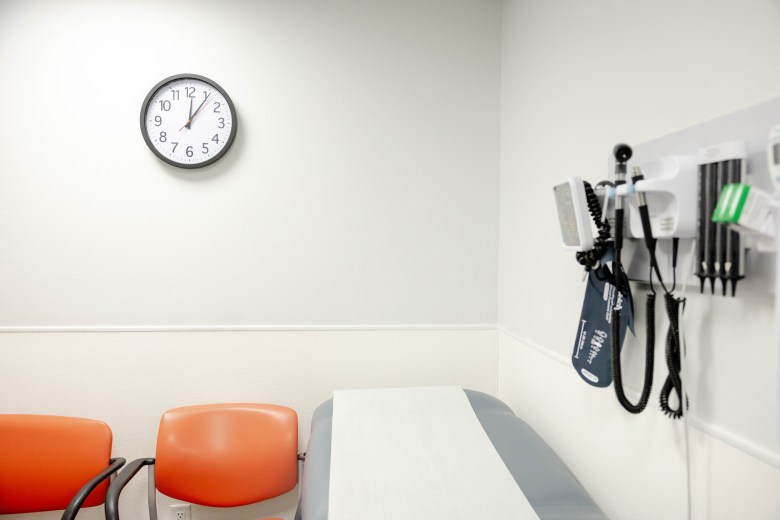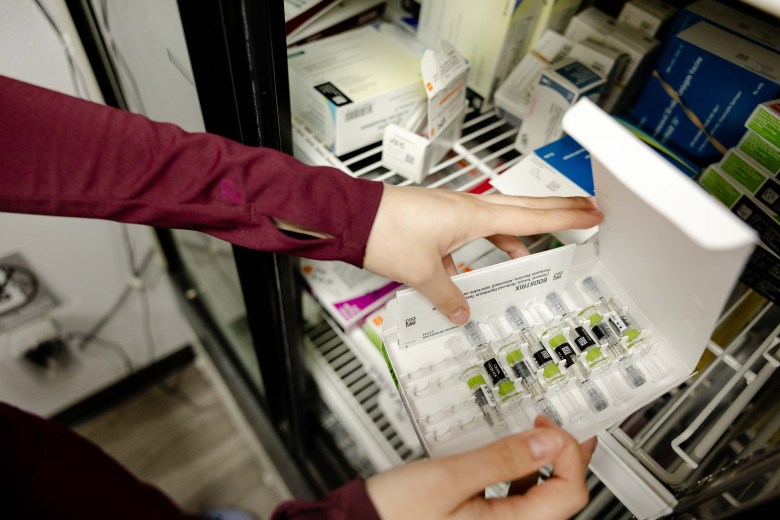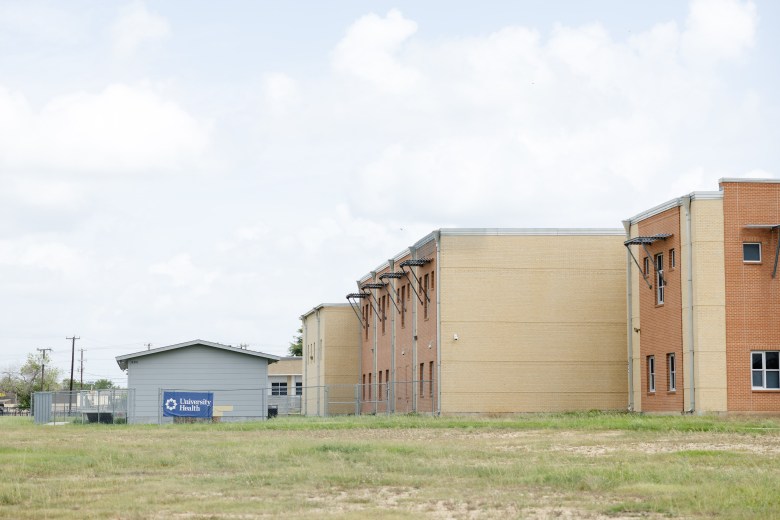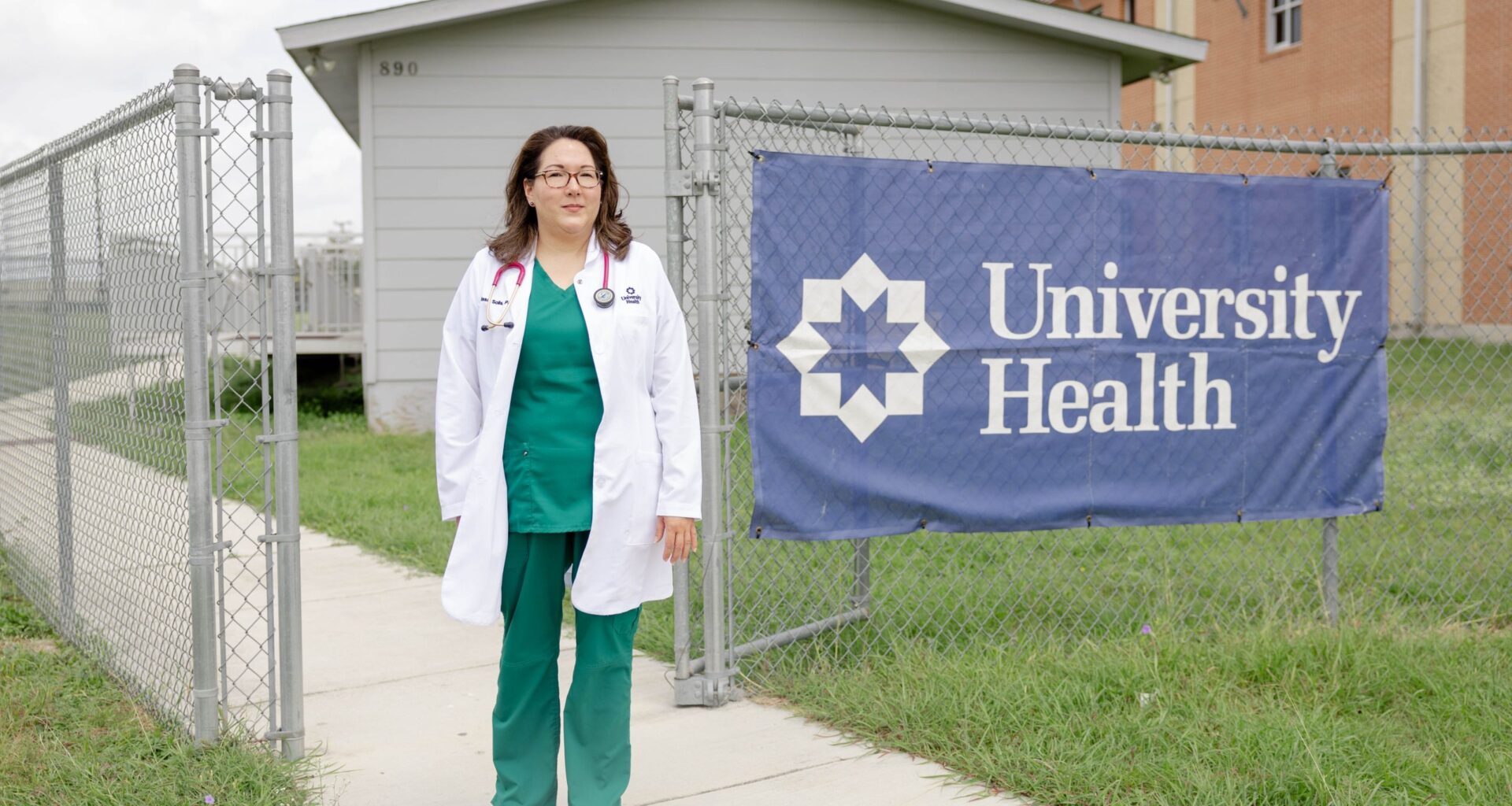For Morashaze Clay, a mother of three and full-time hospice worker, University Health’s student-based clinics are more than a place to get immunizations for her kids.
When she learned about the clinic on Davis Middle School’s campus, where her family is zoned to attend school, offered more than just shots, Clay said it felt “blessed.”
She started booking medical appointments for her whole family — herself included.
The student-based clinic at Davis, a nondescript portable marked by a simple University Health banner, has served as a primary care provider for the Clay family for the past two years.
Partnering with local school districts, University Health has opened six clinics in some of San Antonio’s most underserved communities since 2013.
At Davis Middle School, a campus where Clay’s children attend school in the San Antonio Independent School District, 96% of students are economically disadvantaged according to state data. This means that their families have limited financial resources or they live below the poverty line.
University Health’s most recent school-based clinic opened in June at Judson ISD’s Wagner High School, where approximately 80% of students are economically disadvantaged.
State data for other campuses and school districts where University Health has a presence, including Harlandale ISD, Southwest ISD and one of Northside ISD’s southernmost schools, paints a similar picture of health disparities.
 An examination room at the University Health School-Based Clinic at Davis Middle School. Credit: Brenda Bazán / San Antonio Report
An examination room at the University Health School-Based Clinic at Davis Middle School. Credit: Brenda Bazán / San Antonio Report
School-based clinics close student care gaps
Melissa Solis, a physician assistant at the Davis clinic, said the school-based model of the clinics are meant to address the “care gaps” of students, or areas that schools alone may not be able to address.
“We manage chronic conditions, we do routine lab orders and screenings, any screenings that are indicated for the patient’s age,” Solis said while walking through the Davis clinic, a portable outfitted with three exam rooms. “Then we have them follow up with us or with our doctor.”
By placing these clinics on school campuses, University Health officials hope to improve student outcomes by addressing issues that could lead to things like chronic absenteeism and mental health challenges.
Dr. Leo Lopez, the medical director who rotates between the school-based clinics, said a unique feature of the clinics are the implementation of mental health screenings to measure whether patients feel socially isolated or stressed.
A survey conducted by the City of San Antonio last year revealed that 1 in 6 teens don’t feel comfortable talking with anyone about their mental health challenges, and more than 60% of teens feel like school has a negative effect on their mental health.
The clinics also offer well-child checkups, regular annual checkups, sports physicals and urgent care services.
“We’re caring for [a patient’s] entire health spectrum as part of a patient-centered medical home,” Lopez said.
Initially, the school-based clinics were only open to students and school staff during school hours, but the clinics have gradually turned into community health centers that are open year-round and available to students’ family members and local residents.
 The University Health School-Based Clinic at Davis Middle School provides services such as vaccines for community members. Credit: Brenda Bazán / San Antonio Report
The University Health School-Based Clinic at Davis Middle School provides services such as vaccines for community members. Credit: Brenda Bazán / San Antonio Report
‘Medical homes’ for community
Theresa De La Haya, the health system’s former senior VP of community health and clinical prevention programs, spearheaded the initial efforts in opening school-based clinics in San Antonio. She says establishing these clinics as “medical homes” for the community was always the goal.
“We wanted to try to bring medical care to people close to their home, close to where they work and close to where they go to school,” De La Haya explained.
De La Haya said some health insurance companies don’t want to cover primary medical care services at student-based centers.
That’s why the clinics first started out by offering limited services like immunizations and often documents services as “episodic” care.
For uninsured patients in Bexar County who don’t qualify for other coverage, University Health offers CareLink, a financial assistance program.
Another unique feature of the school-based clinics is the short waiting times to see the providers, which is very important to Clay who has three daughter ages 10, 11 and 14.
Patients of the Davis clinic can usually get an appointment within two weeks of calling. In contrast, it’s not unusual for medical providers nationwide to take up to 26 days to schedule a new patient, non-emergency appointment.
“There’s never a long wait and I don’t have to wait all day like in a regular office,” Clay said. “I have a busy life with kids, with sports and work.”
For Lopez and De La Haya, perhaps the most important aspect of the school-based clinics is building trust with students and their families, something that can sometimes be hard to achieve in underserved communities.
De La Haya, who now sits on boards for several local nonprofits, recalled first pitching the school-based clinics to reluctant superintendents and school boards who weren’t comfortable with the range of services University Health offered. The solution: letting the community choose what kind of treatments they wanted offered.
Through the school-based clinics, she hopes students, especially teens, feel like they have a safe space to talk about mental and sexual health. She also views the clinics as preventive tools that can step in before more serious situations — such as mental health crises, emergency surgery or teen pregnancy — take place.
 University Health’s clinic at Davis Middle School provides health services to the community from a portable building on campus. Credit: Brenda Bazán / San Antonio Report
University Health’s clinic at Davis Middle School provides health services to the community from a portable building on campus. Credit: Brenda Bazán / San Antonio Report
Lopez, who also serves as chief community and population health officer at University Health and specializes in family medicine, believes the most “sacred” parts of the job are the relationships providers build with patients and their families. He wants patients to feel like they have agency in their health.
“We want to prioritize their belief systems, their preferences,” he said. “We want to kind of include them in their care through things like shared decision making.”
University Health plans to open its seventh school-based clinic at Southside ISD, which will be open part time for the first week of school, with a full opening scheduled for later this year.
